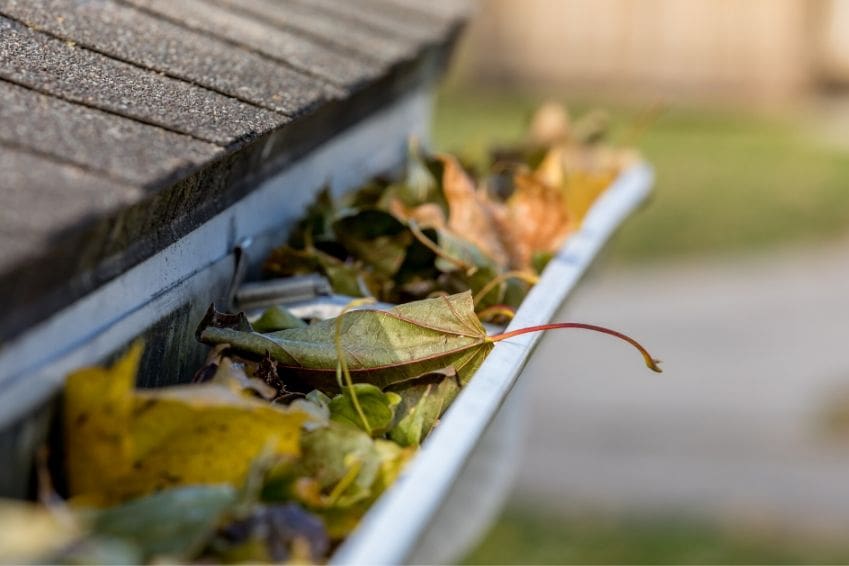
Gutters are one of the most ignored parts of any homeowner’s maintenance list. Understandably, rain gutters are simple in their design and operation; they carry water from the roof to the ground. However, this helps protect your house from serious water damage. Read on if you’re asking yourself, How do gutters work and why are they important? You might learn that your rain gutters do a lot more to ensure your structural integrity than you might think.
How Gutters Work
Fundamentally, gutters collect rainwater from your roof and channel it to the ground through a downspout. During rain, water rolls down from the slope of the roof to the gutters. As the water pools, it travels through the gutter system to the downspout. Downspouts carry water from the gutters to the base of the house. It is typically diverted to protect the basement and foundation from flooding and further water damage. There is a splash block at the base of the downspout to further divert the rainwater from the house.
Why They Are Important
Rain gutters are incredibly important because they protect your home from rain and water damage. Without a gutter system, rainwater would likely collect in your roof, causing rot, deterioration, or mold. This will weaken your shingles, soffit, and fascia. Naturally, gravity pulls the water down from your roof to your windows, siding, and foundation. Moisture in the windows causes condensation, which damages the sill and interior walls. Not to mention, mold and grime can develop. When pooling against your home’s foundation, water causes erosion, weakens the integrity and structure, and causes basement flooding. Gutters protect against all of this. However, gutters can weaken if not taken care of. Leaves and other debris easily block gutters from working properly. Once debris builds up, water will overflow and damage the siding of the home. Heavy storms and high winds can also misalign your gutter system. This can weaken your gutters and cause them to break entirely.